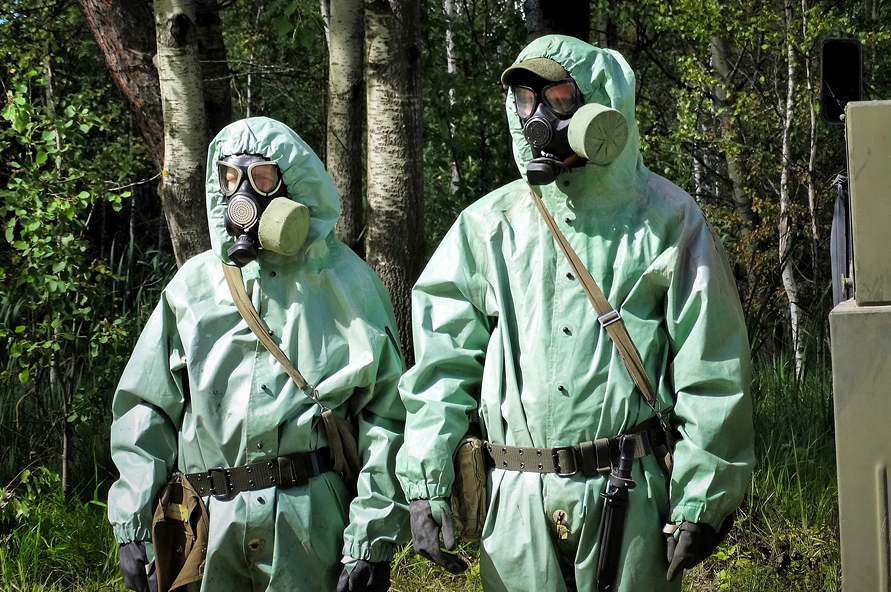EN 14683 Medical Mask Bacterial Filtration Efficiency (BFE) Testing
The EN 14683 standard for medical face masks, specifically addressing the performance criteria related to bacterial filtration efficiency (BFE), is a critical benchmark in ensuring public safety. This testing procedure evaluates how effectively a mask can block bacteria from passing through it. Bacterial Filtration Efficiency is one of several key parameters that determine the overall efficacy of a medical mask in protecting healthcare workers and patients.
The test involves exposing a sample of the mask to a controlled atmosphere containing aerosolized particles, which are then measured for their ability to pass through the material. The percentage of bacteria retained by the filter is calculated based on this measurement. This metric helps determine whether the mask meets the required efficiency levels set forth in EN 14683.
The methodology described in EN 14683 ensures consistency and accuracy across different laboratories, which is crucial for regulatory compliance and trust among end-users. The standard specifies precise conditions such as the type of bacterial suspension to use (such as Staphylococcus aureus), the duration of exposure, and the volume of airflow through the sample.
Understanding these parameters allows quality managers and R&D engineers to ensure their products meet international standards. Compliance officers can also leverage this information for auditing purposes, ensuring that all aspects of production adhere to regulatory requirements. For procurement teams, knowing these specifications aids in selecting suppliers who provide masks meeting stringent BFE criteria.
The importance of accurate BFE testing cannot be overstated, particularly given the ongoing global health challenges posed by infectious diseases like COVID-19. Ensuring that medical professionals have access to high-quality protective equipment is paramount for reducing transmission rates within healthcare settings.
Compliance with EN 14683 not only enhances product reliability but also builds confidence among consumers regarding the safety and efficacy of personal protective devices. By adhering to these stringent standards, manufacturers demonstrate their commitment to providing superior quality products that contribute significantly towards public health.
To summarize, EN 14683 BFE testing is essential for assessing a medical mask's ability to protect against bacterial contamination. Through rigorous evaluation processes and adherence to international guidelines, this service ensures consistent performance across various products, thereby promoting safer environments both in healthcare facilities and communities at large.
Note: For detailed information on the specific methodologies employed during testing, please consult EN 14683.
Benefits
The implementation of EN 14683 BFE testing offers numerous advantages to manufacturers and healthcare providers alike. Firstly, it ensures that the masks meet stringent international standards, thereby enhancing consumer trust in their effectiveness.
Secondly, by adhering strictly to these guidelines, companies can avoid costly recalls or penalties associated with non-compliance. This not only protects brand reputation but also fosters long-term customer loyalty.
Thirdly, successful completion of BFE tests provides valuable data that can be used for continuous improvement efforts within R&D departments. Understanding where improvements are needed allows manufacturers to innovate and refine their products over time.
Lastly, compliance with such stringent standards positions businesses ahead in competitive markets by offering superior quality products backed by rigorous testing protocols recognized worldwide.
Competitive Advantage and Market Impact
Complying with EN 14683 BFE testing offers significant competitive advantages for manufacturers operating in the medical face mask industry. By ensuring that their products meet or exceed these stringent standards, companies can differentiate themselves from competitors who may not adhere to such rigorous protocols.
This commitment to quality not only enhances brand reputation but also attracts healthcare providers seeking reliable protective equipment solutions. In an era where trust in medical supplies is paramount, being able to demonstrate adherence to international norms like EN 14683 can make all the difference.
The ability to provide consistently high-quality products backed by robust testing procedures also opens up opportunities for entering new markets or expanding existing ones. As governments and organizations around the world increasingly prioritize safety measures, companies that already meet these standards are better positioned to capitalize on growing demand.
Use Cases and Application Examples
| Use Case | Description |
|---|---|
| Hospital Settings | Masks used by medical staff to prevent airborne infections. |
| Clinical Trials | Evaluation of new mask designs before commercial release. |
| Emergency Response Teams | Protective gear for first responders during outbreaks. |
| Public Health Campaigns | Distribution of masks to communities affected by disease outbreaks. |
The use cases outlined above highlight how EN 14683 BFE testing plays a crucial role in safeguarding public health. Whether it's protecting medical professionals or distributing protective gear during emergencies, ensuring that every mask meets the required standards is essential for preventing the spread of infectious agents.
| Test Setup | Description |
|---|---|
| Aerosol Generation | Preparation of controlled bacterial suspension. |
| Mask Placement | Positioning the mask in a specific orientation during testing. |
| Data Collection | Recording particle retention rates post-exposure. |
The detailed setup described above ensures accurate measurement of bacterial filtration efficiency, providing reliable results that are crucial for regulatory compliance and consumer confidence.





